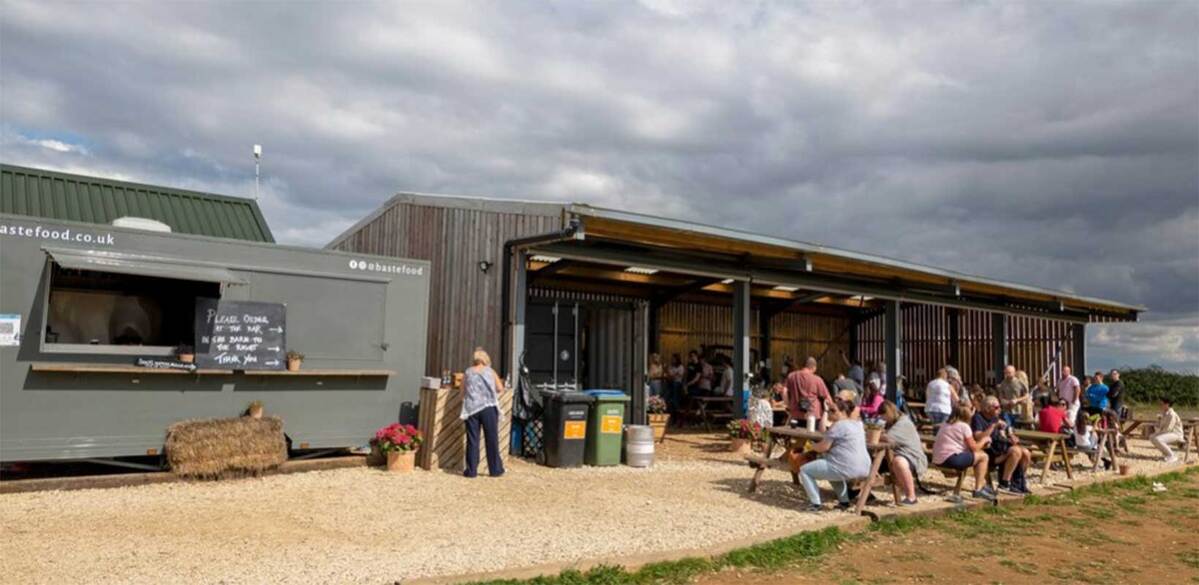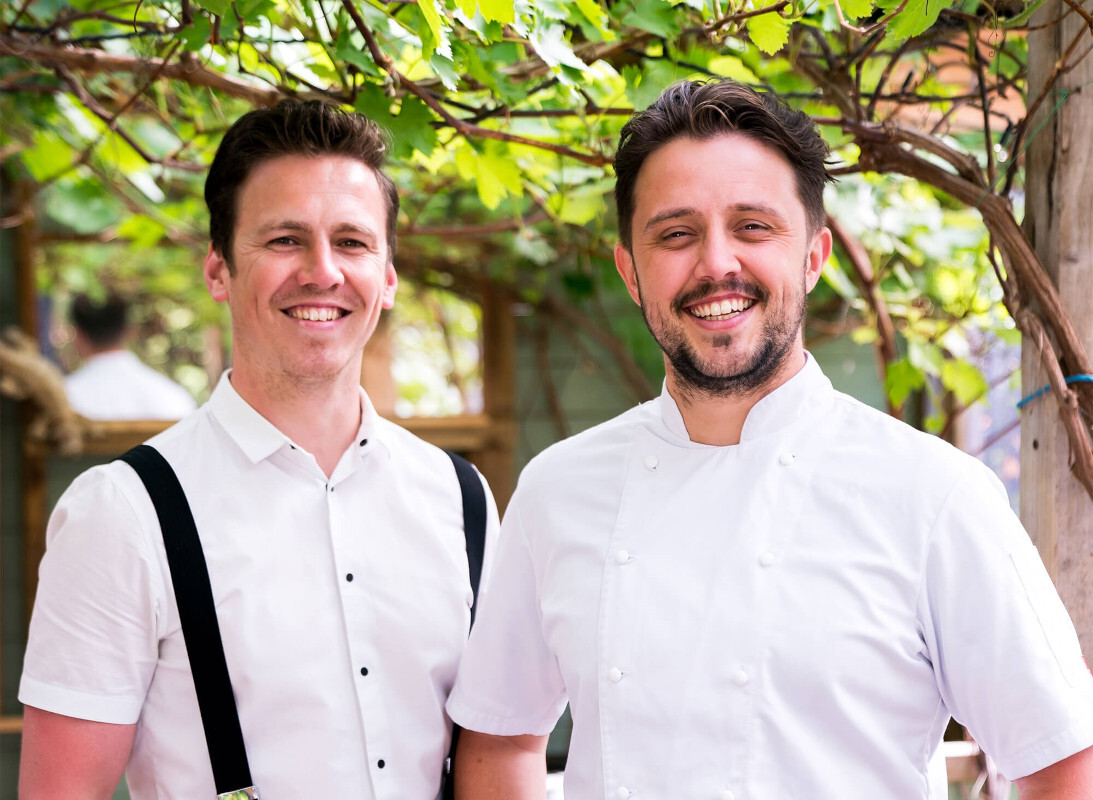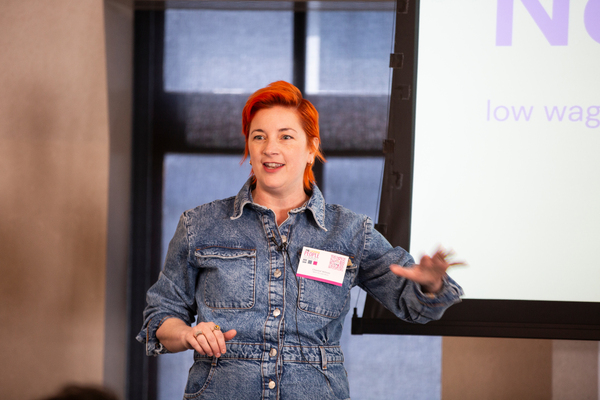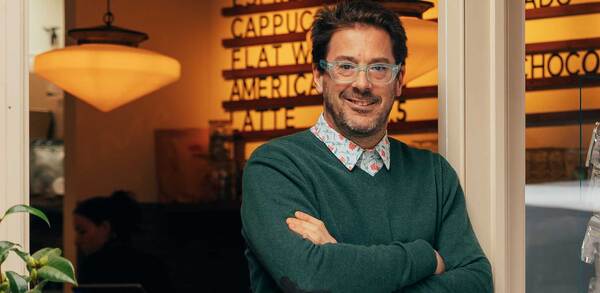It's Chile outside
A lot has changed for David Stangroom in the past year. He has got married, he has won his first job as executive maitre d' and he has moved thousands of miles from the UK to live in Chile's capital city, Santiago. What's more, he is enjoying both his career and his life outside work more than ever before.
Stangroom had been working for Royal Caribbean Cruise Lines as a dining room manager, travelling between Harwich and St Petersburg and New York and Bermuda, when Cupid's arrow struck and he fell in love with the Chilean snack stewardess, Marcia. He proposed to her aboard their ship, Splendour of the Seas, and when she said "yes" they decided it was time to head for dry land together.
"We thought about going back to England," he says, "but from what I heard, it seemed the money people were earning in hospitality jobs wasn't any good any more, so we decided to give Chile a try."
Initially, on arriving in Santiago at the beginning of 1997, and with only a very rudimentary knowledge of Spanish, Stangroom got a job as an English teacher, and over the following eight months worked hard at learning the language. Then, last August, he began looking in earnest for a hospitality job. "I started applying for maitre d' and sous chef positions," he says, "writing letters on spec and also getting some introductions from friends, as it's important to have connections here."
Within days, the introductions had paid off and he had an interview for the newly created position of executive maitre d' at the five-star, 160-bedroom Radisson Royal Santiago Hotel. Soon after this, he was invited back to do a psychometric test. "For any management position here, you have to take a psychology test," he explains. "They do it to find out if you'll be able to cope with the stress of the city and the job."
By the beginning of September, Stangroom was offered the job and was asked what salary he wanted. The hotel immediately agreed to his demand of 900,000 pesos a month (about £1,400) - a high salary in a city where average earnings are about 400,000 pesos a month. He started work by the end of the month.
To begin with, however, Stangroom was classified as a trainee at the hotel because of visa restrictions. He explains: "It's Catch 22 in Chile: to get a job, you have to have a visa, but to get a visa you have to have a job. By taking me on as a trainee the hotel got round the problem because I didn't have to have a proper contract. Then, once I'd been here for a few weeks, they were able to make me permanent and get my visa sorted out."
Over his first few months in the job, Stangroom has been extremely busy because of the mediocre service standards he discovered on arriving at the hotel. In the restaurant, he found waiters were serving guests from the right or left as it suited them, were failing to get rid of crumbs from the tablecloth between courses and were generally not providing the type of welcome that international guests expected.
"Our North American and European clients expect waiters to chat and be friendly," he says, "but Chileans don't normally do that, and are quite shy with strangers, so I'm having to encourage them to be more confident with guests." Each day, half-an-hour before lunch service and from 4pm to 5pm, Stangroom also now holds training sessions to show waiters how to lay tables, serve meals, clear tables and pour wine.
He has also introduced some tough measures to deal with the national bad habit of turning up late. "Punctuality is appalling in Chile," he says, "so I've introduced a system whereby if everyone comes in on time, they all get a bottle of wine at the end of the month. And I've had to introduce warnings and pay deductions for staff who are late."
A further area on which Stangroom has been working hard is training staff from the hotel's two bars about cost control. As with many Mediterranean countries, Chile has a free-pour culture, so someone asking for a gin and tonic will often be given a glass at least half-full of gin. At the Radisson, this meant bar profits were traditionally fairly dismal. "I've been teaching the bar staff about portions," he says, "and got them to reduce the measures they are serving. So far we've managed to cut our costs from 50% of profits to 25%."
Stangroom is reasonably pleased with the progress that his staff have achieved over the past five months. He estimates the level of service they are providing has moved from three-star to about four-and-a-half, but he plans make the training sessions a permanent fixture, so service standards will soon be five-star, he hopes.
The demands of the job mean that he generally works long hours, usually beginning at 8am and often doing a 12- to 14-hour day. But that is not to say that life is all work. Stangroom is a fan of the lifestyle Santiago offers. It has a Mediterranean climate and its position, one hour from the coast to the west and one hour from the Andes to the east, means that weekends are often spent on the beach in summer (December to March) and skiing in winter (June to August).
Stangroom's earnings also ensure that he has a good standard of living. Rent, clothes and food are all considerably cheaper than in the UK - going out to one of Santiago's top restaurants rarely costs more than about £10-£15 a head, for example. "And it's easy to make friends here as long as you speak Spanish," he says. "The social life is actually quite similar to home - when we meet friends we usually go out to dinner or to a bar."
For anyone in the hospitality industry with an ambition to travel, Stangroom recommends they consider Santiago, particularly as the hotel and restaurant sector is currently going through a period of phenomenal growth. "The tourist industry here seems to be increasing tenfold a year at the moment," he says, "and there are loads of opportunities for people in hospitality, especially managers and chefs, as the Chileans don't have much experience of the five-star industry. It's also fairly easy to get a visa to work here. Once you've applied for a job, you can come and work as a trainee, as I did, until your visa application is sorted out."
As for his own plans, Stangroom's ambition is to become a food and beverage manager within the next few years, and he likes the idea of staying with Radisson throughout his career. "I'm not sure I'll go back to England, as the standard of living is so good here," he says, "but I want to stay with this company, so I guess where I go depends on where they send me."













